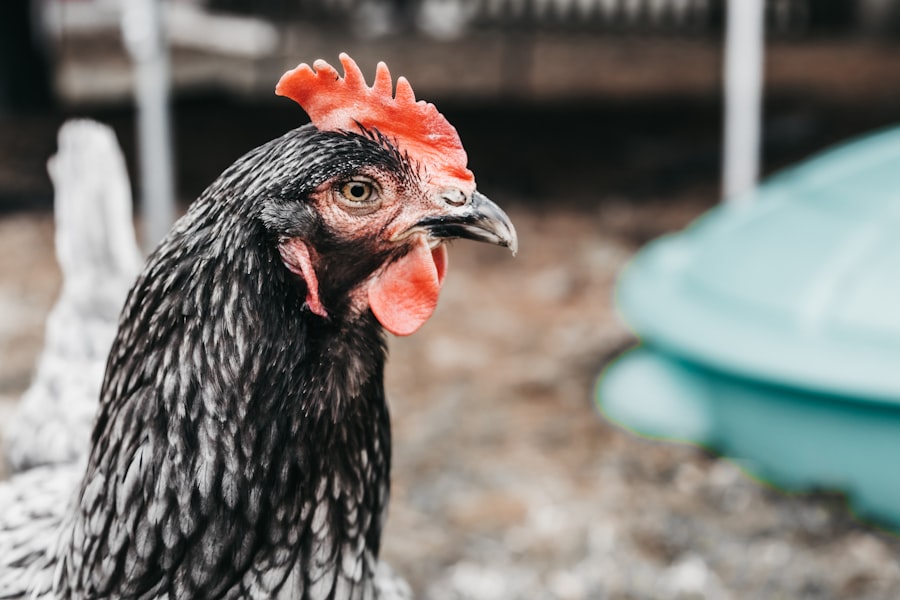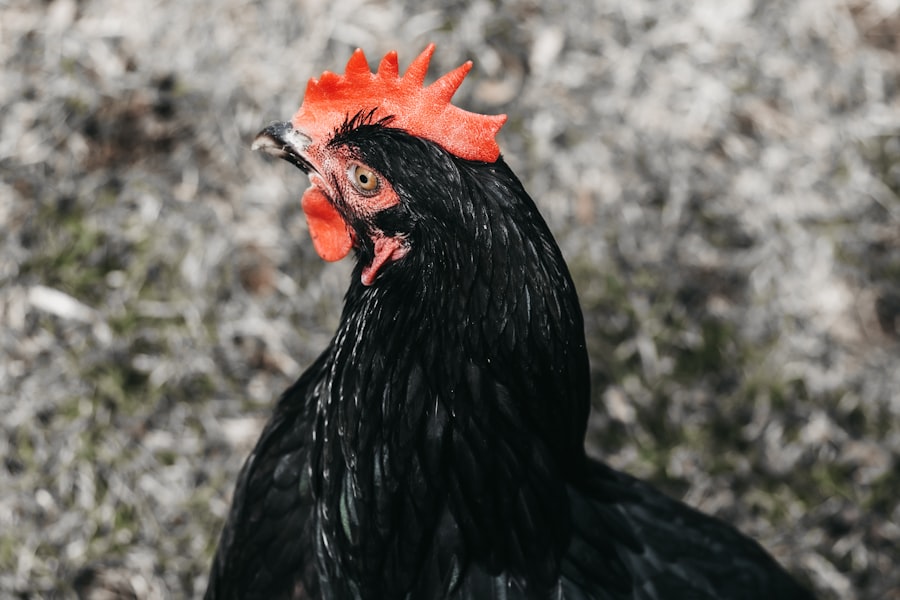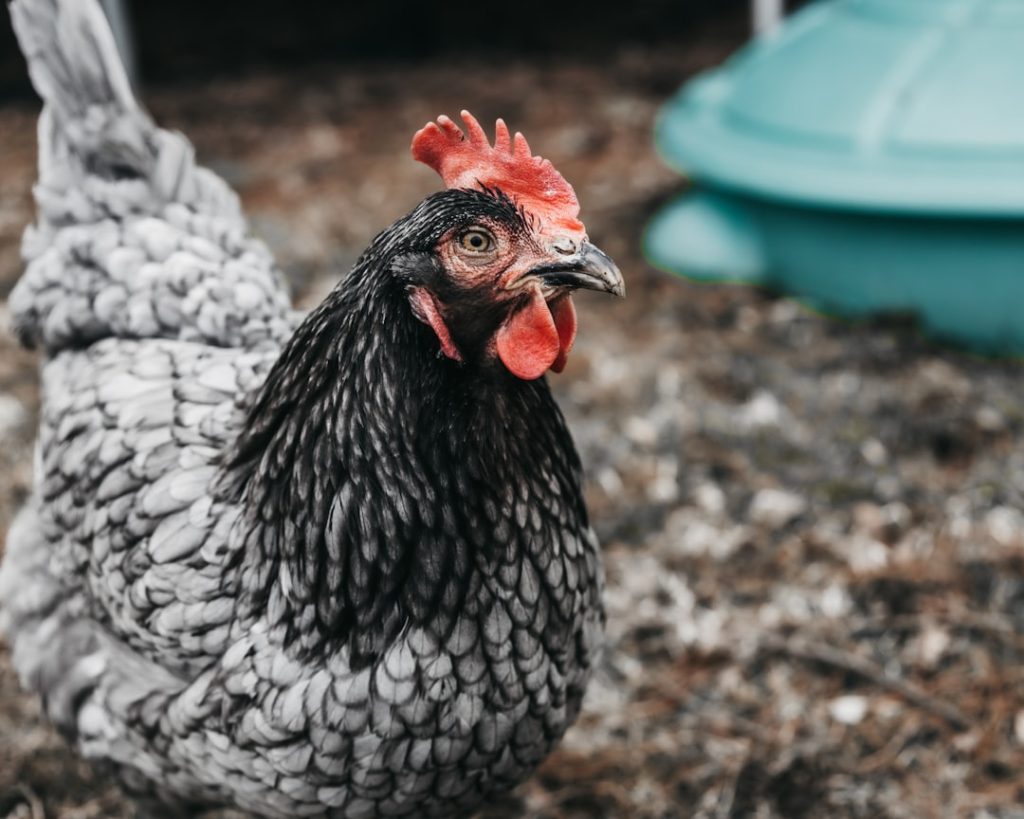Predators of chickens come in various forms, and identifying them is crucial for flock protection. Common threats include foxes, raccoons, coyotes, hawks, owls, and domestic dogs. Each predator presents distinct challenges based on their behavior and hunting methods.
Foxes are known for their cunning nature and ability to burrow under fences. Hawks and owls are adept aerial hunters, capable of swift attacks. Raccoons possess dexterity that allows them to manipulate latches and doors, making them particularly dangerous to coops.
Understanding local predator populations enables chicken owners to implement appropriate protective measures. Wild animals are not the only concern; domestic pets such as dogs, cats, and even birds can pose risks to chickens if not properly managed. Vigilance and proper coop security are essential to safeguard flocks from both wild and domestic threats.
By recognizing the specific predators in an area and their unique characteristics, chicken owners can develop effective strategies to ensure the safety and well-being of their birds. This knowledge allows for the implementation of targeted protective measures, reducing the risk of predation and maintaining a healthy, secure flock.
Table of Contents
- 1 Securing Your Coop: Building a Predator-Proof Enclosure
- 2 Implementing Deterrents: Using Visual and Auditory Repellents
- 3 Keeping a Clean Environment: Removing Attractants and Hiding Places
- 4 Supervising Free Range Time: Monitoring and Protecting Your Flock
- 5 Using Guardian Animals: Introducing Dogs or Other Predators
- 6 Seeking Professional Help: Hiring Pest Control Services or Wildlife Experts
- 7 FAQs
- 7.1 What are some common predators that may attack chickens?
- 7.2 How can I protect my chickens from predators?
- 7.3 Are there any natural deterrents to keep predators away from chickens?
- 7.4 What should I do if I suspect a predator is targeting my chickens?
- 7.5 Are there any non-lethal methods to deter predators from attacking chickens?
Key Takeaways
- Predators can include animals like foxes, raccoons, and hawks, so it’s important to be able to identify them.
- Building a predator-proof enclosure for your coop is essential to keeping your flock safe.
- Visual and auditory repellents can help deter predators from approaching your coop.
- Removing attractants and hiding places around your coop can help prevent predators from being drawn to the area.
- Supervising your flock during free range time and using guardian animals like dogs can provide added protection.
Securing Your Coop: Building a Predator-Proof Enclosure
Constructing a Sturdy Coop and Run
Building a predator-proof enclosure is crucial for keeping your chickens safe from harm. This involves constructing a sturdy coop and run designed to keep out potential threats. When building a coop, it’s essential to use high-quality materials that are durable and resistant to tampering from predators.
Securing the Enclosure
This includes using heavy-duty wire mesh for the walls and roof of the run, as well as secure latches and locks on all doors and windows. Additionally, it’s vital to bury wire mesh around the perimeter of the coop to prevent predators from digging underneath and gaining access to your chickens.
Designing a Safe and Secure Environment
In addition to the physical structure of the coop, it’s also important to consider the layout and design of the enclosure. Providing plenty of hiding spots and perches for your chickens can help them feel safe and secure, while also making it more difficult for predators to reach them. It’s also essential to keep the coop clean and free of any food scraps or debris that may attract unwanted visitors.
Implementing Deterrents: Using Visual and Auditory Repellents

In addition to building a secure coop, implementing visual and auditory repellents can help deter predators from approaching your property. Visual deterrents such as scarecrows, reflective tape, or predator decoys can help make predators think twice before approaching your coop. These visual deterrents can create the illusion of a larger predator presence in the area, which may discourage potential threats from getting too close to your chickens.
Additionally, using auditory repellents such as motion-activated alarms or radios can help create a noisy and unpredictable environment that may deter predators from approaching. It’s important to regularly rotate and change the location of visual and auditory deterrents to prevent predators from becoming accustomed to them. By keeping predators on their toes, you can help create a more challenging environment for them to navigate, which may ultimately discourage them from targeting your chickens.
Implementing visual and auditory repellents in conjunction with a secure coop can provide an added layer of protection for your flock and help keep predators at bay.
Keeping a Clean Environment: Removing Attractants and Hiding Places
Keeping a clean environment is essential for deterring predators from targeting your chickens. This means regularly removing any food scraps or debris from around the coop, as well as keeping the surrounding area free of potential hiding spots for predators. By eliminating potential attractants and hiding places, you can make your property less appealing to predators and reduce the likelihood of an attack on your flock.
In addition to keeping the area around the coop clean, it’s also important to regularly inspect the perimeter for any potential entry points that predators may exploit. This includes checking for gaps in fences or walls, as well as ensuring that all doors and windows are securely latched at all times. By taking proactive measures to keep a clean environment and remove potential attractants and hiding places, you can help minimize the risk of predators targeting your chickens.
Supervising Free Range Time: Monitoring and Protecting Your Flock
Allowing your chickens to free range can provide numerous benefits for their health and well-being, but it’s important to supervise their outdoor time to ensure their safety. When allowing your chickens to free range, it’s crucial to monitor their behavior and be vigilant for any signs of potential threats. This includes keeping an eye out for any nearby predators or unusual activity in the area that may pose a danger to your flock.
In addition to monitoring your chickens while they free range, it’s also important to provide them with adequate protection in the form of shelters or hiding spots where they can seek refuge if needed. This can include providing access to secure coops or shelters within the free range area where your chickens can retreat if they sense danger. By supervising your flock during free range time and providing them with adequate protection, you can help ensure their safety while still allowing them the freedom to roam and forage.
Using Guardian Animals: Introducing Dogs or Other Predators

Canine Guardians: Loyal Protectors of Your Flock
Introducing dogs or other predators into your flock can provide an added layer of protection for your chickens. Dogs are natural protectors and can help deter potential threats from approaching your chickens. By introducing a well-trained dog into your flock, you can provide an extra level of security and peace of mind knowing that your chickens have a loyal guardian watching over them.
Avian Guardians: Territorial Defenders
In addition to dogs, other predators such as geese or guinea fowl can also serve as effective guardians for your flock. These birds are naturally territorial and will alert you to any potential threats while also helping to deter predators from approaching.
Creating a Secure Environment
By introducing guardian animals into your flock, you can help create a more secure environment for your chickens and reduce the risk of predation. This multi-layered approach to protection can give you peace of mind and help ensure the safety of your flock.
Seeking Professional Help: Hiring Pest Control Services or Wildlife Experts
In some cases, dealing with persistent predator threats may require professional assistance. Pest control services or wildlife experts can provide valuable insight and expertise in dealing with specific predator issues in your area. These professionals can help assess the situation and provide recommendations for securing your coop and run, as well as implementing effective deterrents to keep predators at bay.
Additionally, wildlife experts can provide guidance on humane methods for dealing with predator threats, such as trapping and relocating problem animals. By seeking professional help, you can gain access to valuable resources and support in protecting your flock from potential threats. Whether it’s dealing with a persistent predator problem or simply seeking advice on how to better secure your coop, professional assistance can be a valuable asset in ensuring the safety of your chickens.
In conclusion, protecting your flock from predators requires a multi-faceted approach that includes understanding the specific threats in your area, securing your coop with a predator-proof enclosure, implementing deterrents, keeping a clean environment, supervising free range time, using guardian animals, and seeking professional help when needed. By taking proactive measures to protect your chickens, you can create a safe and secure environment where they can thrive without fear of harm from predators. With careful planning and vigilance, you can provide your flock with the protection they need to live happy and healthy lives.
If you’re looking for more information on keeping chickens safe from predators, you might want to check out this article on whether geese can eat chicken feed. It provides valuable insights on how to manage different types of poultry together and ensure their safety and well-being.
FAQs
What are some common predators that may attack chickens?
Some common predators that may attack chickens include foxes, raccoons, coyotes, dogs, cats, hawks, owls, and snakes.
How can I protect my chickens from predators?
You can protect your chickens from predators by building a secure coop and run, using hardware cloth instead of chicken wire, installing motion-activated lights or sound devices, and using guard animals such as dogs or geese.
Are there any natural deterrents to keep predators away from chickens?
Some natural deterrents to keep predators away from chickens include planting thorny bushes around the coop, using strong-smelling herbs and plants, and keeping the area clean and free of food scraps that may attract predators.
What should I do if I suspect a predator is targeting my chickens?
If you suspect a predator is targeting your chickens, you should immediately secure your coop and run, inspect the area for any signs of entry, and consider setting up traps or contacting a professional wildlife removal service.
Are there any non-lethal methods to deter predators from attacking chickens?
Non-lethal methods to deter predators from attacking chickens include using scare tactics such as noise makers or visual deterrents, installing predator-proof fencing, and removing any potential food sources that may attract predators.
Meet Walter, the feathered-friend fanatic of Florida! Nestled in the sunshine state, Walter struts through life with his feathered companions, clucking his way to happiness. With a coop that’s fancier than a five-star hotel, he’s the Don Juan of the chicken world. When he’s not teaching his hens to do the cha-cha, you’ll find him in a heated debate with his prized rooster, Sir Clucks-a-Lot. Walter’s poultry passion is no yolk; he’s the sunny-side-up guy you never knew you needed in your flock of friends!







